Irrigation and Agriculture
Western Basins Water Resources Management Project
Project Name
Western Basins Water Resources Management Project
Client
Ministry of Energy and Water, Afghanistan
Donor
ADB
Project Cost
US$ 90.5 million
Duration
2008-2014
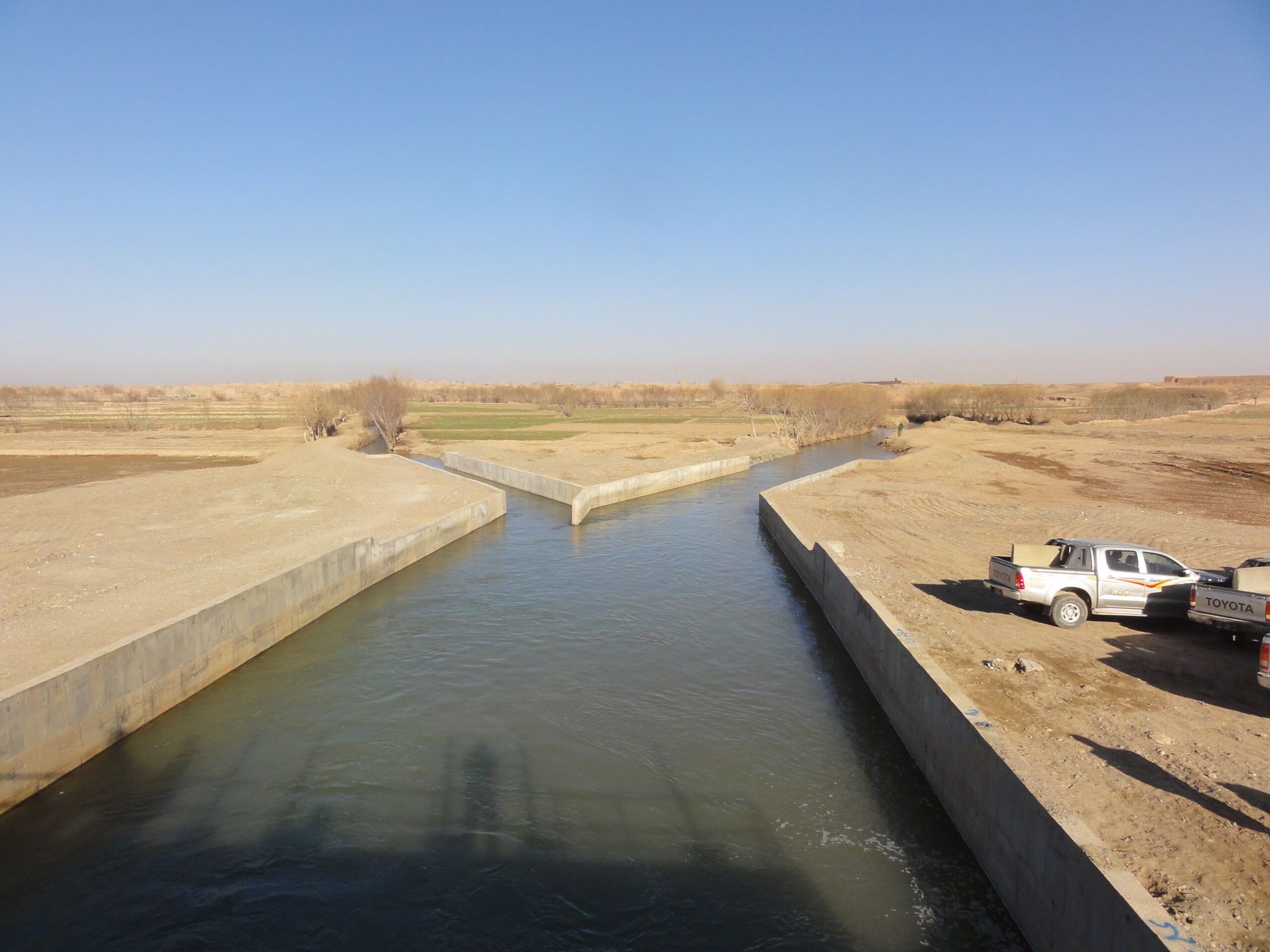
The project goal was to strengthen integrated water resources management within the western basins (consisting of the Hari Rud and the Murghab Rivers) and improve the irrigation performance of traditional community-based (mirab) systems. And developed additional sources of irrigation supply, enhance agricultural practices to strengthen the national economy through significantly improved agricultural production, and improve the livelihoods of the residents of the basins. The project outputs included (i) improved integrated water resources management in the western basins; (ii) rehabilitation, upgrading and development of irrigation infrastructure and a strengthened community-based “mirab” (Master of water distribution) approach to irrigation system management; (iii) enhanced support for improved agricultural productivity and rural livelihoods; (iv) development of women-owned agricultural processing business for local markets; and (v) strengthened staff capacity and enhanced institutional frameworks for both integrated water resources management and irrigated agriculture.
Sheladia provided technical services to establish ground and surface water database, feasibility study, detailed design, preparation of bidding documents and construction supervision of 4 main and related secondary and tertiary canals. We have prepared an environmental assessment, resettlement plan, and gender plan and provided monitoring and evaluation services to the project. Furthermore, we trained the PIU and Water Management Department Staff of the Ministry of Energy and Water through on-job training. We also trained farmers, particularly women farmers and small business owners.
Services
- Established a comprehensive surface and groundwater database, including GIS and river basin models
- Devised and established a basin water committee (BWC) and a River Basin Authority (RBA) for the Hari Rud Basin
- Identified, provided feasibility studies, prioritized, and selected water resource development sub-projects
- Provided detailed design and FIDIC-standard tender documents for all irrigation sub-projects
- Conducted GIS and topographic surveys to ensure the quality design of all infrastructure in the basin
- Provided construction supervision of all civil works contracts
- Prepared environmental assessments, gender plans and resettlement plan for all sub-projects
- Prepared and implemented extensive training programs for the PMO and PIU Staff of the Ministry, and water users
Design, Implementation and Supervision of Solar Photovoltaic Pumping (SPV) for Agricultural Irrigation
Project Name
Design, Implementation and Supervision of Solar Photovoltaic Pumping (SPV) for Agricultural Irrigation
Client
Rural Electrification Board, Bangladesh
Donor
Government of Bangladesh and the Asian Development Bank.
Project Cost
US$ 45.5 million
Duration
2019-2022

Sheladia is designing and supervising the implementation of 2000 solar pumping systems for irrigation including installation, commissioning, and an awareness campaign. Sheladia developed a detailed and sustainable business model for the effective promotion of this technology. The project’s main purpose is to reduce CO2 emissions by replacing the diesel pumps. The project is funded by the Government of Bangladesh’s Rural Electrification Board and the Strategic Climate Fund of the Asian Development Bank.
Services
- Providing design, implementation, and supervisory support for the project
- Developing criteria for site selection using a participatory approach in consultation with solar advisory group (SAG)
- Examining the financing options for PV pumps for multiple target value chains including irrigation value chain, aquaculture value chain, livestock value chain, greenhouse value chain, and horticulture value chain.
- Developing a sustainable business model for the project
UPSCALING INTEGRATED WATER RESOURCES MANAGEMENT FOR WORLD BANK FUNDED RURAL ENTERPRISE SUPPORT PROJECT II IN UZBEKISTAN
Project Name
Upscaling Integrated Water Resources Management for World Bank funded Rural Enterprise Support Project II in Uzbekistan
Client
Swiss Development Authority (SDA)
Donor
ADB
Project Cost
US$ 108 million
Duration
2014-2015
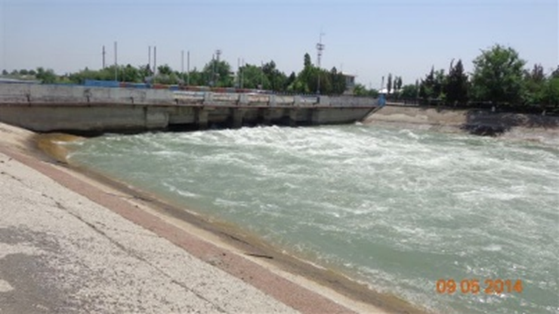
The Project is funded by the World Bank and it was designed to increase the productivity, financial, and environmental sustainability of agriculture and the profitability of agribusiness in the project area. These components included: (i) strengthening of Water Consumer Associations (WCA) and providing institutional development to train and support WCAs to rehabilitate, operate and maintain on-farm irrigation and drainage systems; and (ii) services/ support to improve irrigation and drainage technology through the creation of Farmer Field Schools (FFS) for the distribution of simple and accessible water-saving practices through seven demonstration plots, one for each district.
SHELADIA provided project management and technical services to complete this ongoing program. RESP II covered 250,000 ha of irrigated land cultivated by 4,000 larger size farmers operating under the cotton and wheat State quota system; 100,000 small dehkan farmers with plots between 0.1 and 0.4 ha; and 265 rural settlements (mahalla) with 150,000 kitchen gardens and, in some cases, also for their drinking water supply.
Services
- Established and registered WCAs along hydrologic boundaries;
- Strengthened planning, management, and governance functions of 65 WCAs, including operational and financial management plans, demand-based water schedules, and O&M plans;
- With WCA, developed construction programs to improve inter-farm and on-farm structures and contracts for and supervise construction;
- Trained WCA members/ farmers in institutional, legal, financial, and technical aspects of WCA operations;
- Introduced and trained all WCAs in efficient and demand-oriented water planning and use;
- Developed AIS canal-level MIS systems provided training and assisted with implementation, including providing MIS-related equipment;
- Monitored project training and technology transfer processes, recorded lessons learned and shared knowledge gained through multiple means.
UPSCALING INTEGRATED WATER RESOURCES MANAGEMENT PROJECT IN UZBEKISTAN
Project Name
Upscaling Integrated Water Resources Management Project in Uzbekistan
Client
Swiss Development Authority (SDA)
Donor
ADB
Project Cost
US$ 144 million
Duration
2014-2015
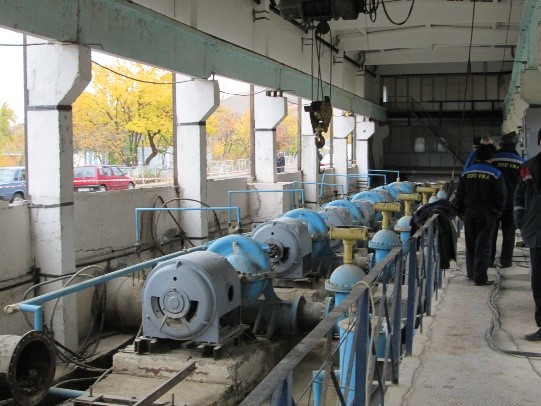
The Project funded by ADB, and it was designed to sustain and increase agriculture production and productivity in seven districts of Ferghana, Namangan, and Samarkand Provinces by making their pump irrigation systems fully functional and operate in an efficient manner. The Project consisted of two main Components: (1) Rehabilitation and Upgrading of Irrigation and Drainage Infrastructure and (2) Improved Water Resources Management. The project was working with 1,875 farmers in 34 WCAs covering 173,000 hectares of irrigated agricultural lands in the Ferghana Valley and the Zarafshan River Basin which are the two most productive agricultural areas in Uzbekistan.
Sheladia developed a detailed plan to improve and optimize water management at the irrigation system level based on integrated water resources management (IWRM) principles. Designed capacity-building program for Basin Irrigation System Administration (BISA) in the subprojects. In addition, we prepared guidelines and proposals for improved Operation and Maintenance (O&M) and water management plans for integrated and coordinated operation of inter-farm and on-farm infrastructure, reorganized beneficiary organizations into non-commercial, registered Water Consumer Associations (WCAs) based upon hydrologic boundaries, prepared inventory of assets and liabilities of WCAs.
Services
- Developed detailed plan to improve and optimize water management at the irrigation system level based on integrated water resources management (IWRM) principles
- Provided capacity building for Basin Irrigation System Administration (BISA)
- Prepared guidelines and proposals for improved Operation and Maintenance (O&M) and water management plans for integrated and coordinated operation of inter-farm and on-farm infrastructure
- Prepared inventory of assets and liabilities of WCAs and registered all WCAs
- Provided capacity building to AISs and beneficiary organizations
- Conducted training of trainers (ToT) for AIS staff and trained WCA Council members and staff
- Established a series of farmer field schools (FFSs) to be managed by farmers and established FFS
- Prepared training materials and trained FFS trainers and farmers in water management, soil fertility management, crop production and diversification.
Agricultural Productivity Initiative in Mali
Project Name
Agricultural Productivity Initiative in Mali
Client
USAID/Mali
Donor
USAID
Project Cost
US$ 20 million
Duration
2004-2007

This Project improved and expanded irrigated agriculture in Mali and increased producers’ incomes to foster economic growth and substantially reduce poverty. The Project’s objective was achieved through a well-designed production-related program that created investment opportunities for the private sector in the irrigation sector.
Sheladia introduced irrigation into new land on an environmentally sound and sustainable basis and supported the development of water user organizations to make better use of water for agriculture, human and livestock consumption. We also designed and implemented the M&E system which allowed the project to focus its resources to improve agricultural and livestock productivity.
Services
- Improved efficiencies and revenue generation of irrigated land
- Introduced irrigation into new lands on an environmentally sound, sustainable basis
- Supported water user organizations to make better use of water for agriculture and human and livestock consumption while protecting the environment
- Designed and implemented an M&E system for all project components. Major work included the study of irrigation project feasibility and impacts such as increased irrigated area, increased cropping intensity, improved agricultural and livestock productivity, equity in distribution, returns to land levelling, water supply, sanitation, and health, education/literacy, and poverty alleviation.
Integrated Initiative for Economic Growth in Mali
Project Name
Integrated Initiative for Economic Growth in Mali
Client
USAID/Mali
Donor
USAID
Project Cost
US$ 5.2 million
Duration
2010-2013
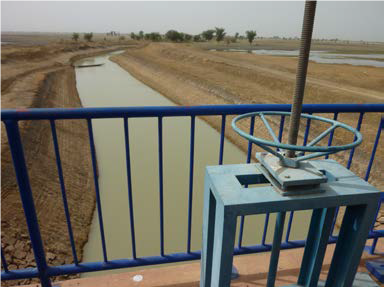
This project aimed to promote economic growth by working with partners to increase competitiveness in five agricultural value chains: rice, potatoes, mangoes, shallots, and tomatoes. The ultimate objective was to increase producer incomes, and the project focused on several intermediate results within each value chain. One of these results was the expansion/rehabilitation of irrigated agriculture and the intensification of agricultural production in the project’s target areas. The project also developed new areas suitable for rice cultivation through the rehabilitation and expansion of irrigation infrastructure.
SHELADIA worked closely with communities on the design and implementation of new irrigation schemes, preparation of contract models for the community labor, and recruitment of local NGOs and private contractors for supervision and civil works of the irrigation infrastructure. SHELADIA was also responsible for ensuring environmental guidelines were met.
Services
- Assessing potential sites
- Conducting local surveys
- Evaluating offers for services,
- Monitoring the progress of the eventual irrigation infrastructure development activities, and reinforcing the capacity of water user associations
Panj Amu River Basin Sector Project
Project Name
Panj Amu River Basin Sector Project
Client
Ministry of Energy and Water, Afghanistan
Donor
ADB
Project Cost
US$ 76 million
Duration
2018-2021

The Project goal is to increase agricultural productivity in the Panj-Amu River Basin by improving water access and use at farm, scheme, and river levels. The project supports the government strategy to increase per-capita income and reduce poverty among rural and pastoral communities. It also improves cropping intensities, irrigated areas, and crop yields on a command area of 74,500 hectares (ha). As a result, increased annual farm incomes in the range of $123-$615 per household for over 55,000 households and created approximately 11,000 full-time rural jobs per annum, with an estimated value of $10.4 million.
Sheladia assisted the Project Management Unit in MEW and MAIL in overall project implementation. The key aspects of the work include: (i) To build the capacity of staff in the PMOs and PIOs to undertake their tasks, (ii)To deliver training jointly with the PMOs and PIOs to government agencies involved in project implementation, (iii) To help set up systems and procedures (including relevant management and monitoring templates) for the PMOs and PIOs, and (iv)To provide technical oversight and guidance on technical aspects of the project.
Services
- Project Management
- Training and capacity building programs to the PMOs, PIOs and Water Department Staff in five provinces
- Set up systems and procedures (including relevant management and monitoring templates) for the PMOs and PIOs
- Provided technical oversight and guidance on technical aspects of the project
- Coordinated and synergy of project interventions between MEW and MAIL.
Feed the Future Senegal KAWOLOR Project in Senegal
Project Name
Feed the Future Senegal KAWOLOR Project in Senegal
Client
NCBA/CLUSA
Donor
USAID
Project Cost
US$ 47 million
Duration
2010-2017
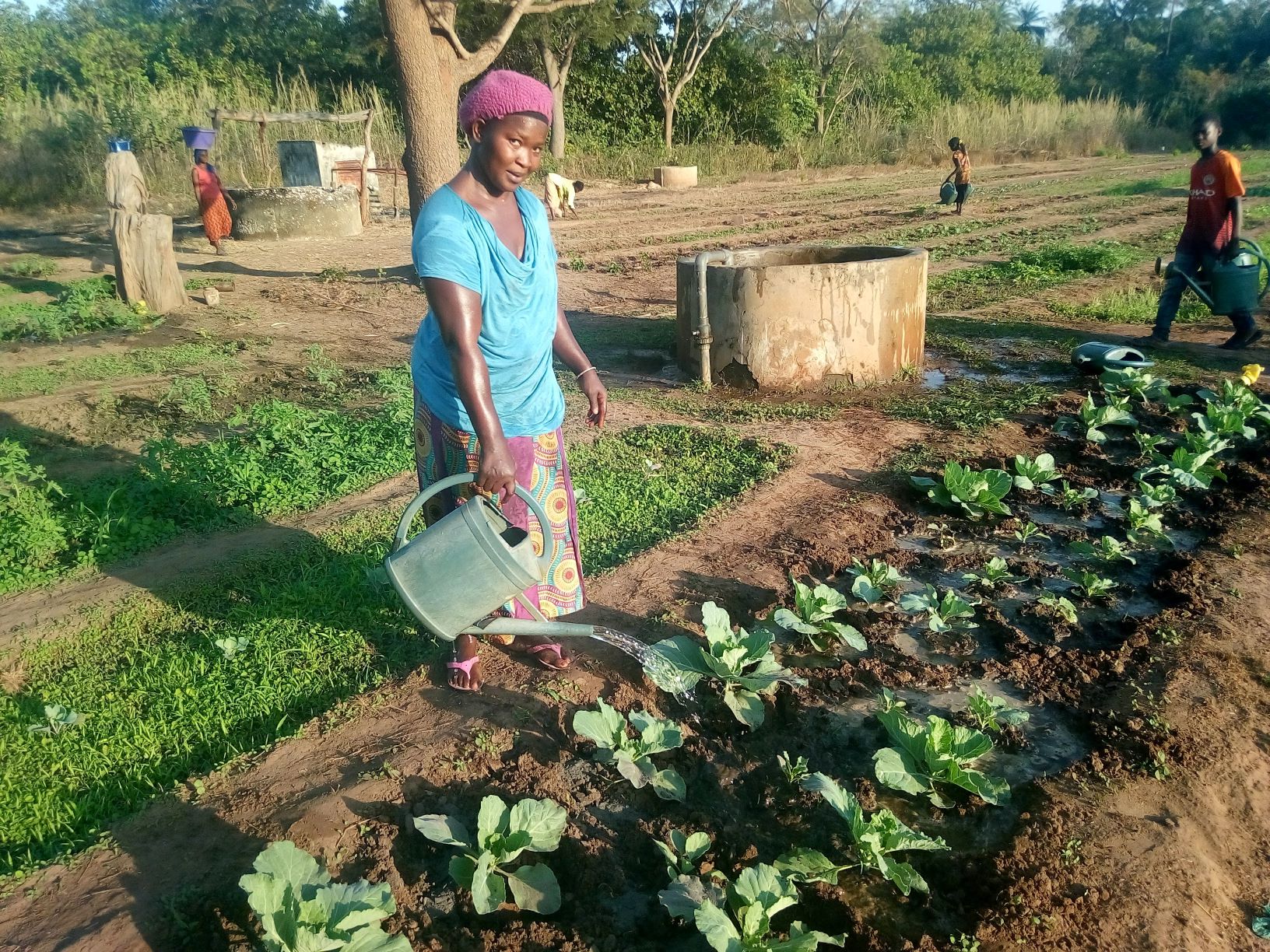
The Project was a five-year cooperative agreement funded by USAID and managed by NCBA-CLUSA in collaboration with Sheladia Associates and other partners. KAWOLOR sustainably increased consumption of nutritious and safe diets and achieved the following Intermediate Results: (a) increased on-farm availability and market supply of diverse, nutritious, and safe foods; (b) increased resilience and income, especially for vulnerable groups; (c) increased adoption of nutrition and care practices; and (d) improved governance of food systems. KAWOLOR’s activities spanned 99 communes and reached 162,000 across 99 communities in 8 regions. KAWOLOR will bolster and link each of the aforementioned Intermediate Results in an integrated nutrition-led agriculture systems approach.
Sheladia played a specialized role in water management that contributes across all project IRs and our team oversaw water infrastructure activities for agriculture, and local capacity building to manage domestic (potable drinking water) and agricultural water solutions. A total of 44,177 individuals in 103 villages gained access to drinking water surpassing the target of 40,000. Communities and clients contributed 62% of the total cost. We also provided monitoring and evaluation support to program leadership.
Services
- Developed M&E Framework including key performance indicators for outputs, outcomes, and impacts
- Designed sampling methodology for baseline and subsequent surveys using appropriate clustering, stratification, and treatment vs. comparison groups.
- Identified production sites for field crops based on analysis of surface and groundwater resources and make recommendations based on the available data
- Assessed and recommend irrigation options based on the study and analysis of the target area
- Designed, installed, rehabilitated, and train in new irrigation technologies
- Expanded the network of commercial manufacturers of irrigation equipment
- Identified rehabilitation-worthy water resource schemes
Niger Food Security Program (ARZIKI) in Niger
Project Name
Niger Food Security Program (ARZIKI) in Niger
Client
NCBA/CLUSA
Donor
USAID
Project Cost
US$ 47 million
Duration
2010-2017

The Program aims to promote food security and improve the livelihoods of food insecure families in selected communities and villages of southern Niger. USAID funds the Program whose objective was to increase food production and incomes and ensure livelihood protection and health for food insecure farming households through improved agricultural and livestock production technologies, increased market participation, innovative approaches to strengthening the household asset base and provision of safe drinking water.
SHELADIA worked closely with the CLUSA and ARZIKI team to contribute to overall project objectives and provide specific technical input in irrigation, water supply and sanitation, and M&E through its long-term and short-term consultants to achieve the desired project outcomes and results.
Services
- Led the design, development, and implementation of the Monitoring and Evaluation system for the ARZIKI Project.
- Assisted ARZIKI in identifying the field crops site based on the surface and underground water resources analysis.
- Introduced new technology for irrigation and trained the staff on design, installation, and rehabilitation
- Established low-cost, easily accessible, safe water sources/technologies in developing water infrastructure.
Additional Water Irrigation and Agriculture Projects
Project Name
Resilience and Economic Growth In Sahel – Enhanced Resilience (REGIS-ER), Niger and Burkina Faso
Clients
USAID/Senegal
Objective
To increase the resilience of chronically vulnerable populations in agro-pastoral and marginal agriculture zones in Niger and Burkina Faso.
Services Provided
-
Socio-Economic Analysis
-
WASH Action Plans
-
Training and Capacity
-
Building
-
Detailed Engineering Design
-
Monitoring and Evaluation
-
Network Planning and Investment Analysis
-
Project Report Preparation
Project Name
Consultancy Service for Technical Assistance Support for the Implementation of IWRMP Component B
Country
Nepal
Client
Department of Irrigation, Government of Nepal
Objective
The World Bank has provided additional funding towards the Irrigation and Water Resources Management Project (IWRMP) to replicate and institutionalize the gains made from improved irrigation water management and agricultural practices.
Services Provided
Currently providing technical assistance to implement Irrigation Management Transfer techniques to support efficient water usage on public irrigation systems in the Kankai, Sunsari Morang, Narayani, and Mahakali regions.
- Technical Assistance
- Institutional Capacity Building
- Irrigation Management Transfer (IMT)
- Policy Analysis/Reform
Project Name
Consultancy Service for Technical Assistance Support for the Implementation of Irrigation and Water Resources Management Project (IWRMP)
Client
Government of Nepal (GON), Department of Irrigation (DOI), Irrigation and Water Resources Management Project (IWRMP)
Objective
To implement Irrigation Management Transfer techniques to support efficient water usage on public irrigation systems of: Kankai, Sunsari Morang, Narayani, and Mahakali regions.
Services Provided
- Project Audit and Action Plans
- Monitoring and Evaluation Planning
- Project Report Preparation
- Project Management/Supervision
- Training and Capacity Building
- Payment Certification